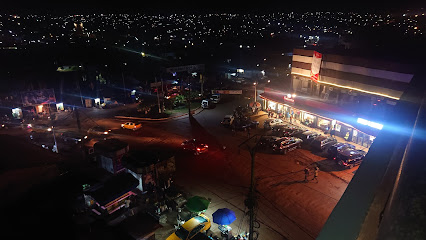
UNESCO Yaoundé: Promoting Education, Science, and Culture in Central Africa
Explore UNESCO's mission in Central Africa: Education, science, culture, and communication for sustainable development in Yaoundé.
The UNESCO office in Yaoundé serves as a regional hub for promoting education, science, culture, and communication across Central Africa. It focuses on implementing strategic orientations and addressing the specific needs of countries in the region, fostering collaboration and sustainable development.
A brief summary to United Nations Educational Scientific and Cultural Organisation
- WG28+F9Q, Yaoundé, Nkol Eton, CM
- +237222508301
Local tips
- Visit during weekdays to explore the exhibitions and learn about UNESCO's projects in Central Africa.
- Check the schedule for special cultural events or workshops to enhance your experience.
- Engage with the staff to gain insights into ongoing initiatives and the impact of UNESCO's work in the region.
Getting There
-
Taxi
Taxis are a common mode of transport in Yaoundé. From the city center, a taxi ride to UNESCO will cost approximately 1500 XAF, depending on the distance and traffic. Ensure the driver is aware of the location, as it is a well-known organization in the city. You can also use ride-hailing apps to book a taxi.
-
Public Transport
While Yaoundé doesn't have an extensive public bus system, shared taxis are available. These are a cheaper alternative, costing around 300 XAF per ride, but can be crowded and less direct. Look for taxis heading towards the Bastos neighborhood, and inform the driver of your destination.
-
Walking
If you are already in the Nkol Eton area, walking to UNESCO is a viable option. Use the main roads for safety and follow the signs towards the organization. The walk should take approximately 15-20 minutes from nearby landmarks. Note that sidewalks may be limited in some areas.
Discover more about United Nations Educational Scientific and Cultural Organisation
Iconic landmarks you can’t miss
United Nations Educational Scientific and Cultural Organisation
0.0 km
Explore UNESCO's mission in Central Africa: Education, science, culture, and collaboration for sustainable development in Yaoundé.
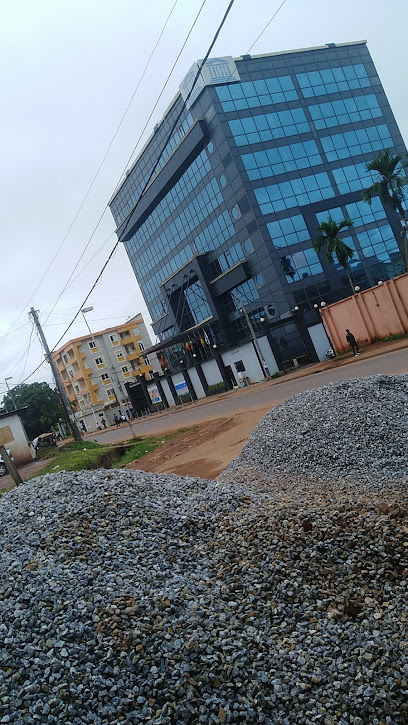
Odza
1.7 km
Explore Odza in Yaoundé: Discover Cameroon's agricultural heartland, engage with local farmers, and immerse yourself in authentic culture.

Entrée Palais des Congrée
1.8 km
A landmark conference center in Yaoundé, hosting major events with panoramic city views from atop Nkol-Nyada hill.
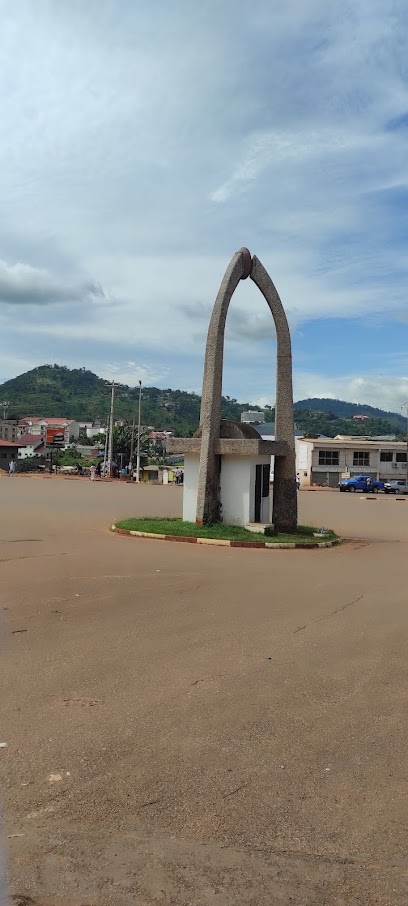
Nokadi
1.8 km
Experience the cozy charm of Nokadi in Yaoundé, where exquisite local coffee meets a warm and inviting atmosphere. A perfect escape in Quartier Manguissa.
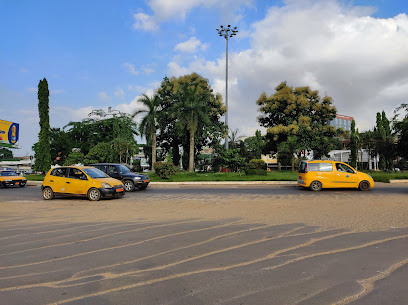
Cabinet Maître N'GANN SUPERMANN Rond point Nlongkak
1.9 km
Explore the tranquil beauty of Cabinet Maître N'GANN SUPERMANN, a lush garden oasis in the heart of Yaoundé, perfect for relaxation and nature appreciation.
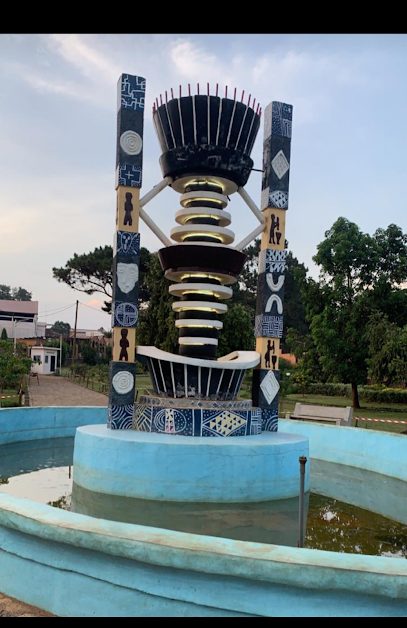
ONACAM (Office National des Anciens Combattants, Anciens Militaires et Victimes de Guerre du Cameroun)
2.4 km
Explore the ONACAM in Yaoundé, a significant institution honoring Cameroon’s military veterans and their sacrifices for the nation.

Le Commissariat à l'Emi-Immigration
2.4 km
Discover the essence of Cameroonian governance at Le Commissariat à l'Emi-Immigration, a pivotal government office in Yaoundé.
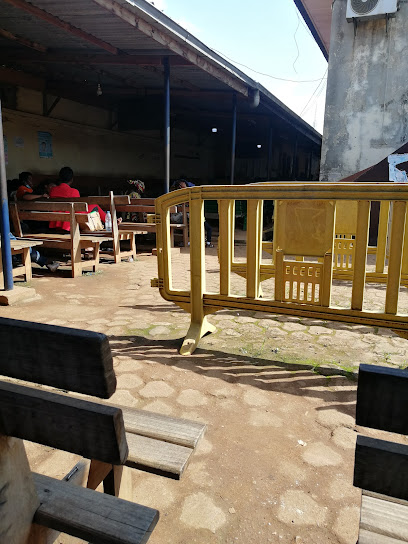
emplacement à visiter
2.5 km
Experience authentic local culture at Yaoundé's barber shop, where grooming meets community and storytelling thrives in a vibrant atmosphere.

Hôtel Mont Fébé
2.6 km
Experience history and luxury at Hôtel Mont Fébé, Yaoundé: panoramic views, elegant accommodations, and a tranquil hillside escape.

Place Saint Josué
2.8 km
Yaoundé's top event venue, Place Saint Josué, offers elegant halls and comprehensive services for unforgettable celebrations and conferences.
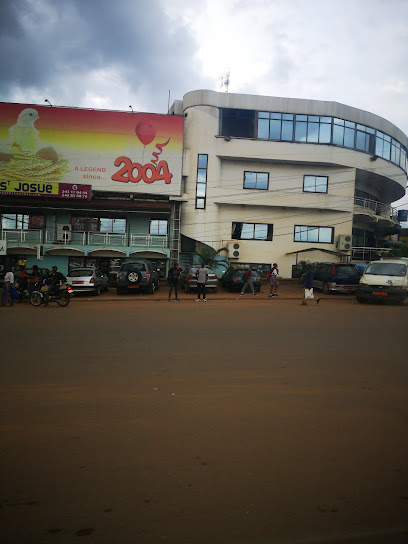
Mount Febe
3.0 km
Escape to panoramic views and spiritual tranquility atop Mount Febe, overlooking Cameroon's capital city, Yaoundé.
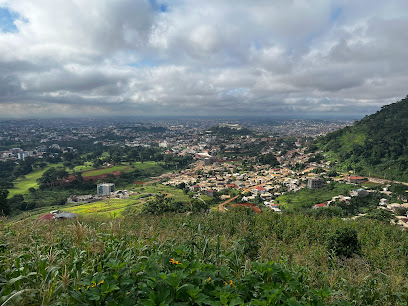
Unmissable attractions to see
Insomnia Game Zone
1.2 km
Experience the ultimate gaming adventure at Insomnia Game Zone in Yaoundé: virtual reality, arcade classics, and high-tech fun for everyone!
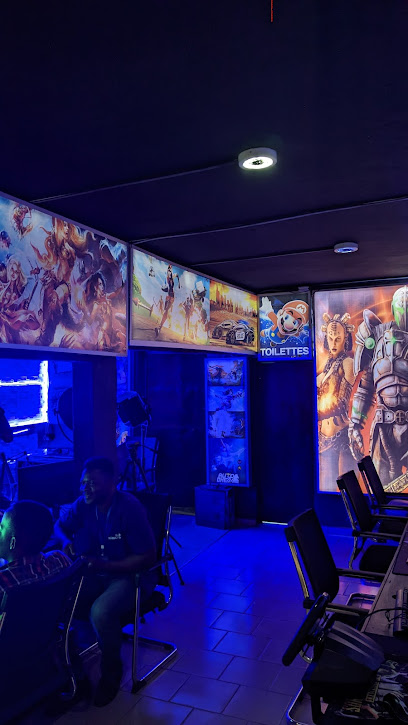
ROND POINT BASTOS
1.2 km
Discover the tranquil charm of Rond Point Bastos, a lush park in Yaoundé perfect for relaxation, picnics, and enjoying the beauty of nature.
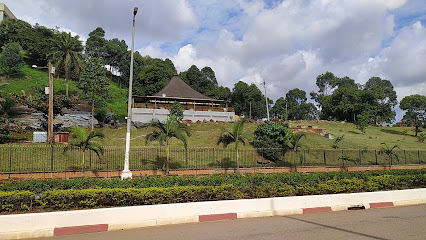
Ceasar
1.7 km
Experience the vibrant culture and rich history of Ceasar, a must-visit tourist attraction in the heart of Yaoundé, Cameroon.

Manèges de Ya-Fe
1.8 km
Experience the thrill of amusement rides and the joy of family fun at Manèges de Ya-Fe in Yaoundé, Cameroon.
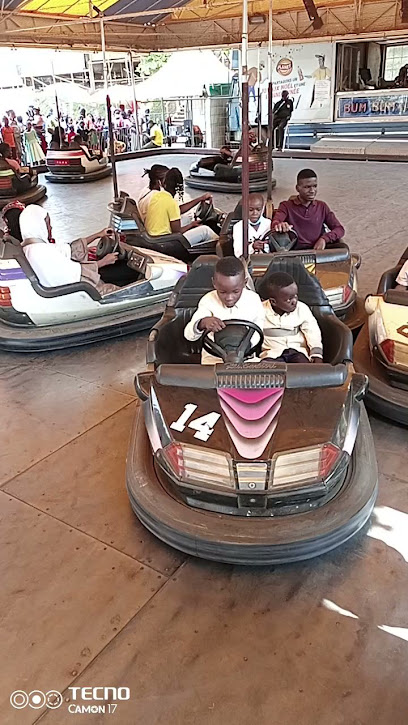
Lac de Mbankolo
1.9 km
Discover the natural beauty of Lac de Mbankolo in Yaoundé, a tranquil lake perfect for relaxation, picnics, and wildlife observation.

Rond point Nlongkak
1.9 km
Discover the tranquil beauty of Rond Point Nlongkak, a stunning garden oasis in Yaoundé, perfect for relaxation and nature appreciation.
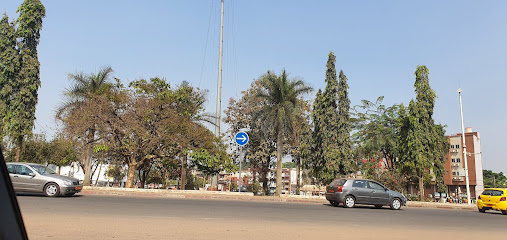
WONDERLAND
1.9 km
Explore Wonderland in Yaoundé: A vibrant playground for families, offering fun activities and a safe environment for children of all ages.
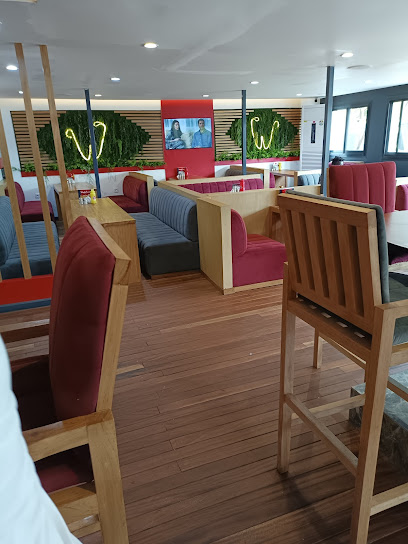
Mont Febe, Hilltop
2.6 km
Discover the enchanting beauty of Mont Febe, a picturesque hilltop in Yaoundé offering stunning views and a peaceful escape into nature.
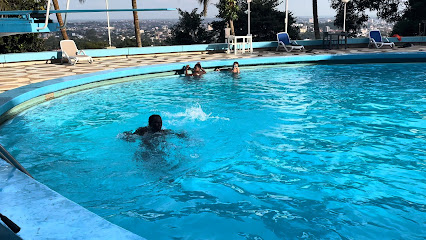
Mbouda
2.7 km
Explore Mbouda, a vibrant tourist attraction in Yaoundé, where culture, local crafts, and breathtaking scenery await your discovery.

Le Rocher
3.0 km
Experience the breathtaking beauty and vibrant culture of Le Rocher in Yaoundé, a must-visit tourist attraction for every traveler.
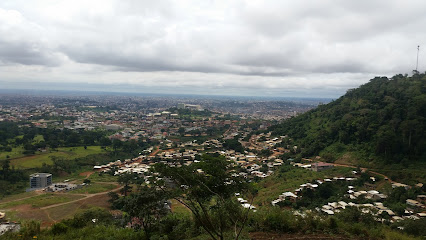
Love stone
3.1 km
Explore the Love Stone in Yaoundé, where folklore meets nature, creating a unique cultural experience steeped in romance and history.
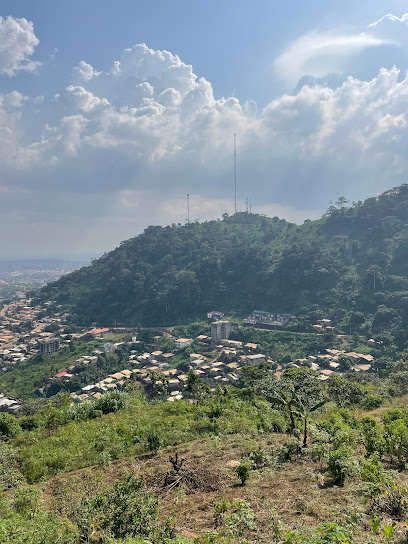
Independence Square
3.2 km
Explore Independence Square in Yaoundé, a vibrant historical landmark that celebrates Cameroon’s rich cultural heritage and independence.
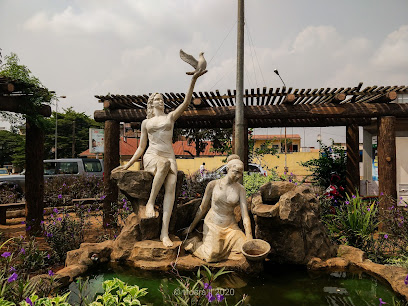
Bois Sainte Anastasie
3.3 km
Discover the serene beauty of Bois Sainte Anastasie in Yaoundé, Cameroon - a perfect blend of nature and dining for every traveler.
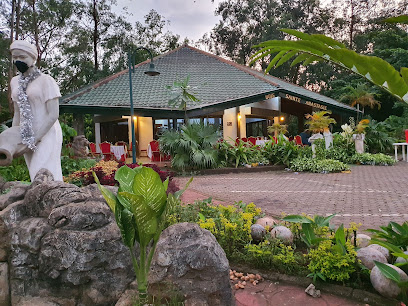
Musée Ethnographique et d'Histoire des Peuples de la Forêt d'Afrique Centrale
3.4 km
Explore the rich cultural heritage of Central Africa at the Musée Ethnographique et d'Histoire des Peuples de la Forêt d'Afrique Centrale in Yaoundé.
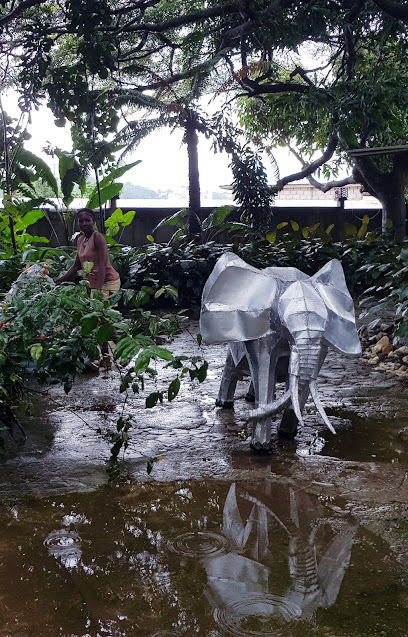
I love my country Cameroon round about
3.9 km
Explore the vibrant 'I Love My Country' Roundabout in Yaoundé, a cultural landmark that showcases the heart of Cameroon.
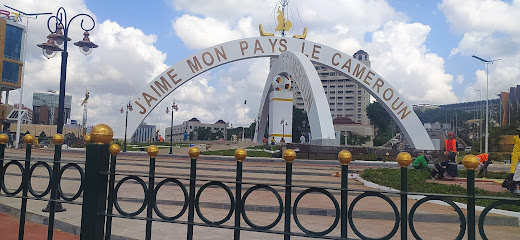
Essential places to dine
White House Restaurant
0.3 km
Experience authentic Cameroonian cuisine at the White House Restaurant in Yaoundé – a must-visit for every food lover.
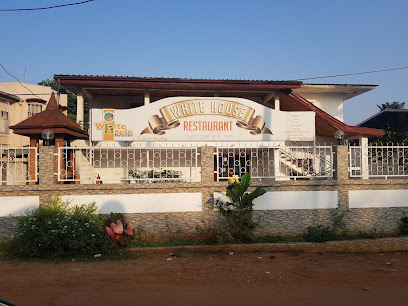
Restaurant Kajazoma
0.4 km
Discover authentic Cameroonian cuisine at Restaurant Kajazoma in Yaoundé - where tradition meets taste in an unforgettable dining experience.
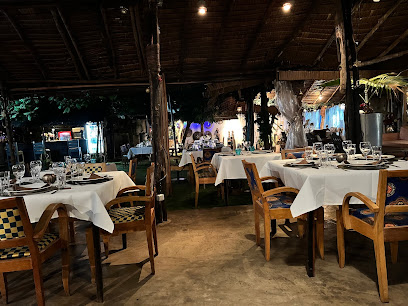
Black Diamond
0.4 km
Experience authentic Cameroonian cuisine at Black Diamond - where every meal tells a story of tradition and flavor.
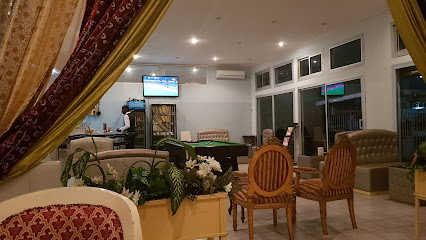
Restaurant Ma Table
0.6 km
Discover the flavors of Cameroon at Restaurant Ma Table in Yaoundé - where every dish tells a story.
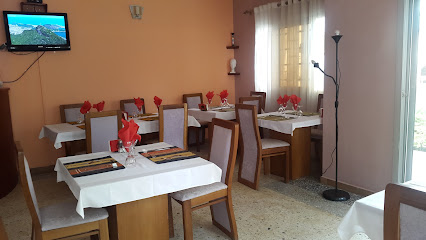
Kennys Great House
0.6 km
Discover gourmet dining at Kenny's Great House in Yaoundé—where local flavors meet elegance in every dish.
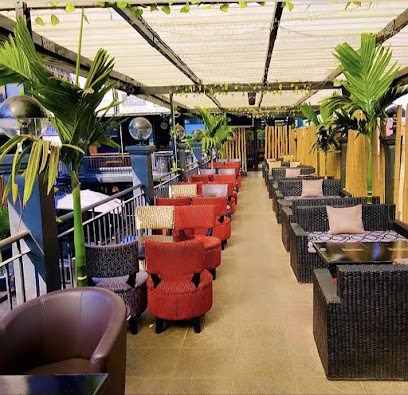
Restaurant "Le Colisée", Yaoundé
0.8 km
Experience the vibrant culinary scene at Restaurant Le Colisée in Yaoundé – where delicious pizza meets delightful sundaes and fine wines.
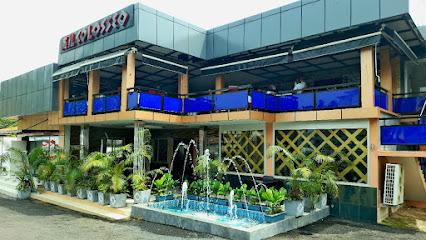
LE PEPEH
0.8 km
Discover the rich flavors of Cameroon at Le Pepeh, a top-rated restaurant in Yaoundé offering authentic dishes and a welcoming atmosphere.
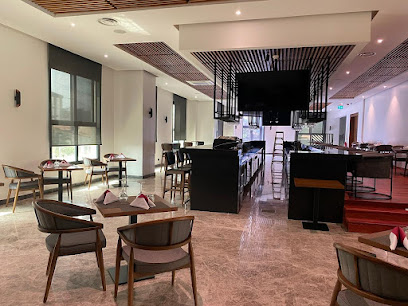
Abidjan Resto (Restaurant Ivoirien)
0.9 km
Discover authentic Ivorian cuisine at Abidjan Resto in Yaoundé – where every dish tells a story.
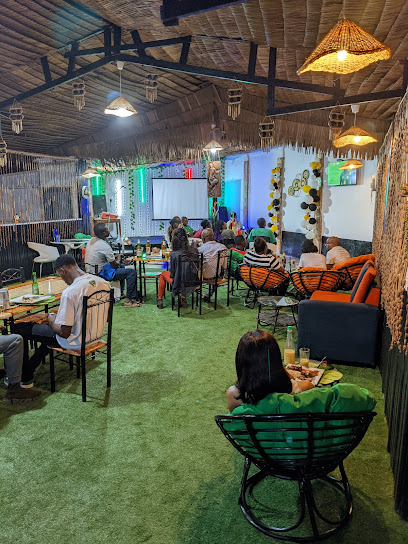
KMC BASTOS YAOUNDÉ
0.9 km
Discover KMC Bastos in Yaoundé - your go-to spot for delicious fast food at great prices!

Restaurant La P'tite Bouffe
1.0 km
Experience the vibrant flavors of Cameroonian and international cuisine at Restaurant La P'tite Bouffe in Yaoundé.

The Famous
1.0 km
Experience authentic Cameroonian cuisine at The Famous Restaurant in Yaoundé - where flavors meet tradition.
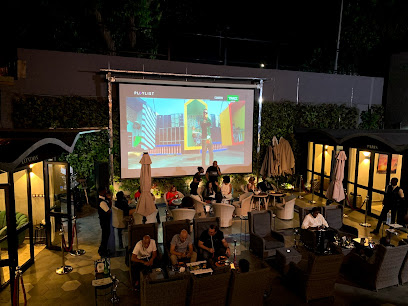
Le Baron (Restaurant-Café)
1.1 km
Discover the vibrant flavors of Lebanon at Le Baron Restaurant-Café in Yaoundé - where culinary traditions meet modern tastes.
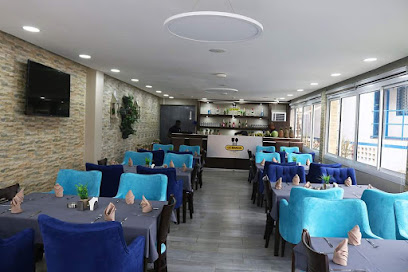
Il Pastaio
1.1 km
Experience culinary delight at Il Pastaio in Yaoundé - where local flavors meet international cuisine at affordable prices.
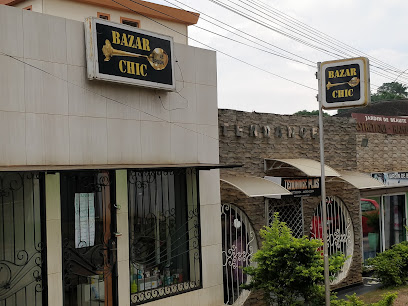
Istanbul Turkish Restaurant
1.1 km
Savor authentic Turkish cuisine at Istanbul Turkish Restaurant in Yaoundé – where every bite takes you on a flavorful journey.
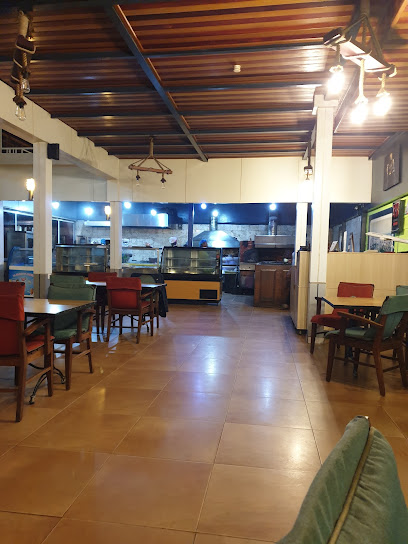
Chez kalli
1.1 km
Discover the culinary charm of Chez Kalli in Yaoundé - where traditional flavors meet contemporary dining experiences.

Markets, malls and hidden boutiques
LA FIRST
0.8 km
Discover the exquisite world of fragrances at LA FIRST Perfume Store in Yaoundé, where every scent tells a unique story.

VBS SHOPPING
0.8 km
Discover the latest women's fashion trends at VBS Shopping in Yaoundé, where style meets culture and quality.
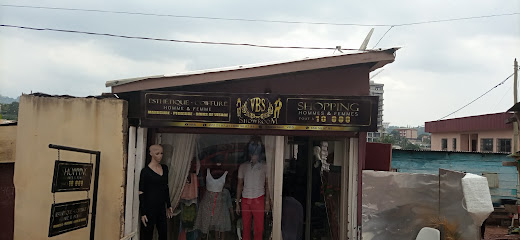
The Dina Shop
1.0 km
Explore unique clothing and accessories at The Dina Shop, a vibrant boutique in Yaoundé that showcases the essence of Cameroonian fashion.

Trust Prêt à porter de luxe by Ernesto Di Lyono
1.0 km
Explore luxury gifts and high-end fashion at Trust Prêt à porter de luxe by Ernesto Di Lyono in Yaoundé, where elegance meets local craftsmanship.

Boutique awa
1.4 km
Explore Boutique Awa in Yaoundé for unique Cameroonian crafts, fashion, and souvenirs that celebrate local culture and artistry.
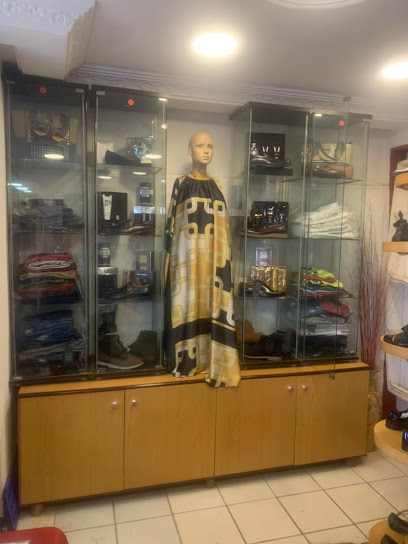
One Store
1.6 km
Discover custom t-shirts that celebrate the vibrant culture of Yaoundé at One Store, your go-to destination for unique fashion.

Mefre Tafre Rodrigue
1.7 km
Experience the vibrant heart of Yaoundé at Mefre Tafre Rodrigue, a bustling shopping mall blending local culture with modern retail.

Free spirit
1.7 km
Explore Free Spirit in Yaoundé, a vibrant fashion accessories store offering unique items that reflect local culture and contemporary trends.
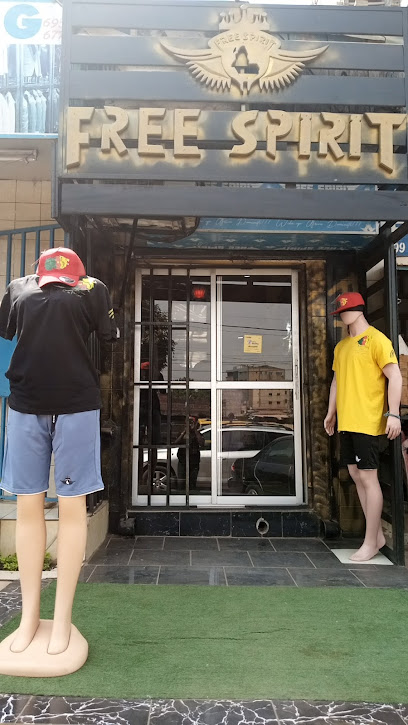
YMAK Distribution Boutique En Ligne, Yaoundé
1.8 km
Experience the vibrant fashion scene at YMAK Distribution Boutique En Ligne in Yaoundé, offering unique styles and local designer pieces.
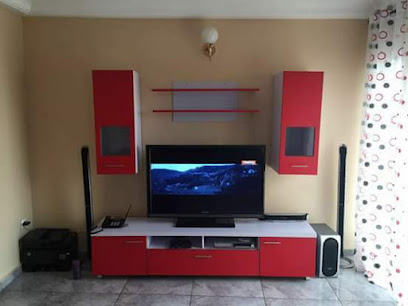
IDP-Goods Showroom
1.8 km
Explore the vibrant IDP-Goods Showroom in Yaoundé for unique souvenirs and a taste of Cameroon's rich culture.
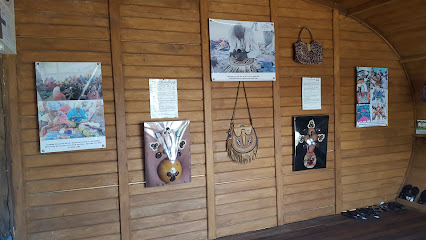
Lewisco Shopping Center
2.0 km
Discover authentic Native American goods at Lewisco Shopping Center in Yaoundé – a cultural hub for unique art, jewelry, and textiles.
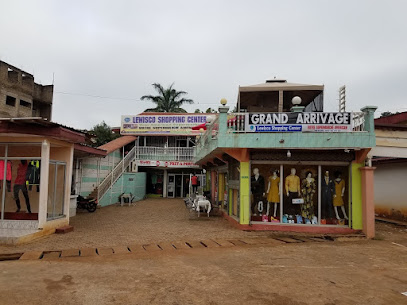
Jfbk
2.1 km
Discover Jfbk in Yaoundé: A vibrant store showcasing local craftsmanship and culture in the heart of Cameroon.

Marché d'Etoudi
2.2 km
Experience the vibrant heart of Yaoundé at Marché d'Etoudi, where local culture and flavors come alive in a bustling market setting.
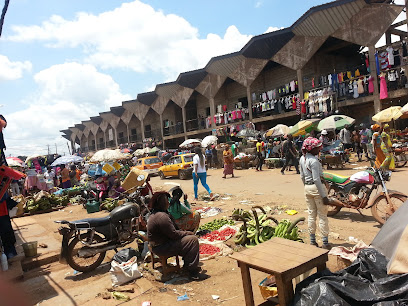
361 Degrees
2.2 km
Discover contemporary fashion at 361 Degrees in Yaoundé, where local craftsmanship meets modern style in a vibrant shopping atmosphere.

Berto Chassures
2.2 km
Explore Berto Chassures in Yaoundé for a unique blend of local fashion and contemporary style, perfect for every traveler.
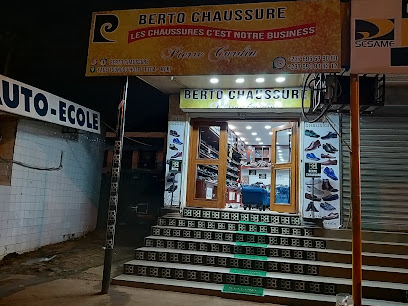
Essential bars & hidden hideouts
The House - Lounge bar
1.0 km
Experience the vibrant nightlife of Yaoundé at The House, a chic lounge bar known for its stylish ambiance and crafted cocktails.
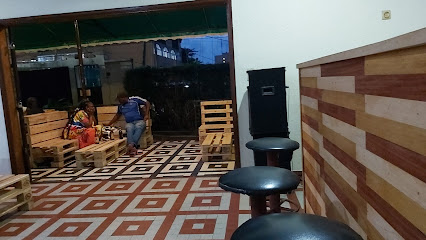
Black & White Sensation (Bastos)
1.1 km
Experience Yaoundé's vibrant nightlife at Black & White Sensation, a stylish lounge offering exquisite cocktails and an inviting ambiance.

Le Balcon-Terasse Bastos
1.1 km
Discover the lively ambiance and refreshing drinks at Le Balcon-Terasse Bastos, a top bar destination in Yaoundé's Quartier Bastos.

The Burger Bar
1.3 km
Experience the ultimate burger adventure at The Burger Bar in Yaoundé, where every bite is a taste of culinary excellence.
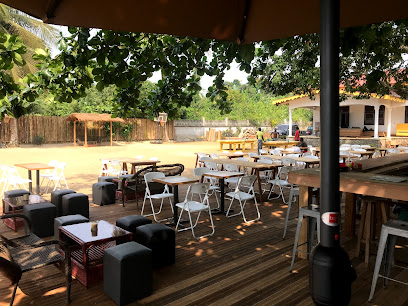
WONDER BAR
1.3 km
Discover the vibrant nightlife and delicious grilled delicacies at Wonder Bar in Yaoundé, a perfect blend of local flavors and lively entertainment.
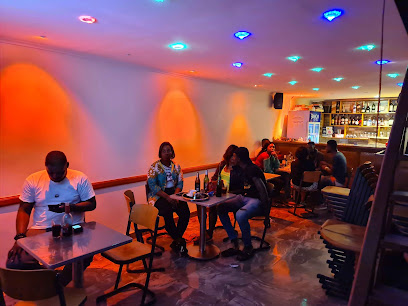
Circle Club
1.3 km
Experience the vibrant nightlife of Yaoundé at Circle Club, a chic lounge perfect for socializing and enjoying expertly crafted cocktails.
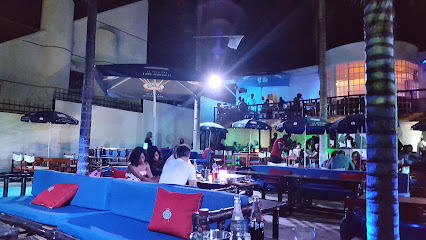
Cosy Pool
1.7 km
Experience the best of French cuisine at Cosy Pool in Yaoundé, where exquisite flavors meet elegant ambiance.
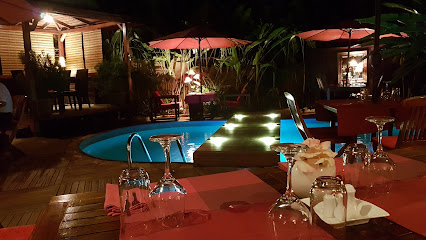
MACADAM BIKERS
1.8 km
Discover the vibrant nightlife of Yaoundé at Macadam Bikers, where good drinks and great company await in a lively atmosphere.
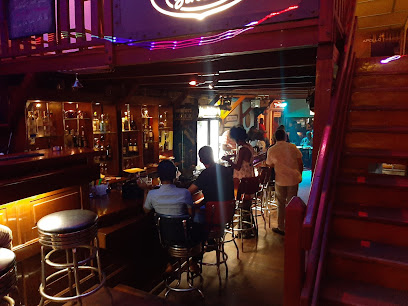
HOT SPOT THE CELLAR
1.8 km
Experience the vibrant nightlife of Yaoundé at Hot Spot The Cellar, a lively bar offering local drinks and a welcoming atmosphere.
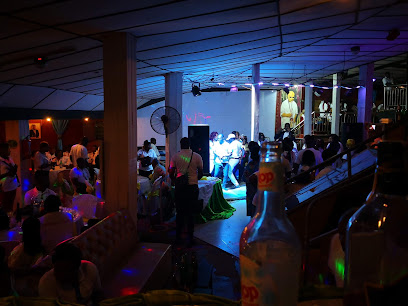
Le Summum
1.9 km
Discover the vibrant allure of Le Summum, a stylish lounge in Yaoundé, perfect for enjoying drinks, music, and local flavors.
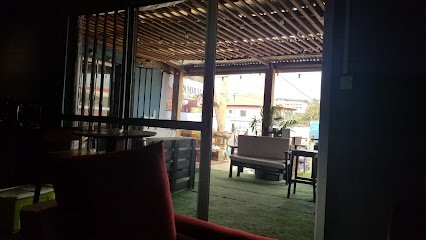
Malaïka Restau Bar
2.0 km
Discover the vibrant culinary scene at Malaïka Restau Bar in Yaoundé, where local flavors meet a lively atmosphere for an unforgettable dining experience.
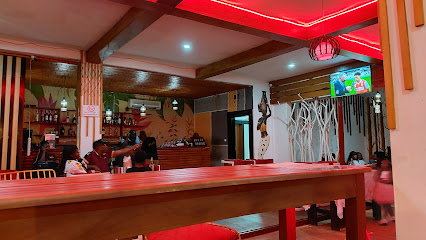
THE RITZ LOUNGE
2.1 km
Experience the vibrant nightlife of Yaoundé at The Ritz Lounge, where refreshing drinks and welcoming atmosphere await you.
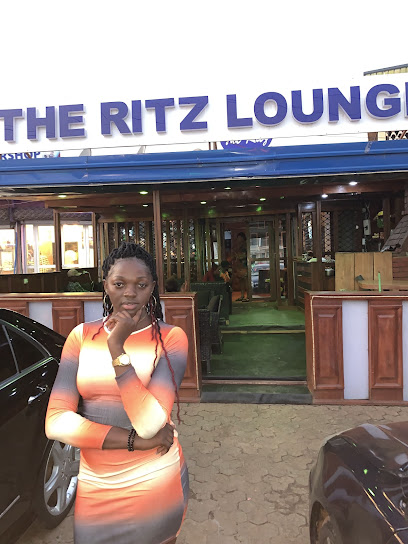
CHEZ DEF : BAR-RESTAURANT-MULTISERVICES
2.2 km
Chez Def: A lively bar-restaurant in Yaoundé offering delicious Cameroonian cuisine and a vibrant social atmosphere.

Bonanjo Plus, Emana
2.3 km
Experience local flavors and vibrant nightlife at Bonanjo Plus, a lively bar in Emana, Yaoundé, perfect for unwinding and socializing.

The Rooftop Yaoundé
2.3 km
Discover breathtaking views and vibrant nightlife at The Rooftop Yaoundé, the perfect bar for relaxation in Cameroon's capital.
